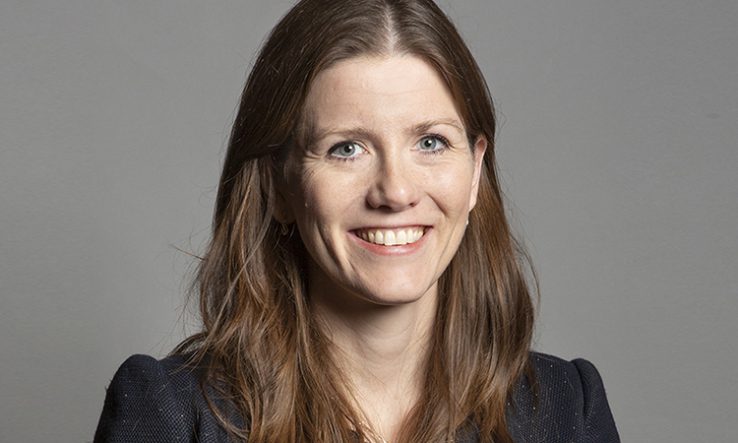
Image: David Woolfall [CC BY 3.0], via Wikimedia Commons
Universities minister ‘busts the myth’ that fee cap will be slashed to £7,500
The universities minister has poured cold water on suggestions that the government is set to reduce undergraduate fees in England from £9,250 to £7,500.
Media reports in recent weeks have said the government will reduce the maximum universities can charge—and which most do charge—in line with recommendations made by Philip Augar’s review of post-18 education funding.
But, speaking at the GuildHE Spring Conference, Michelle Donelan said these stories had not come from her department.
“There have been a few media stories about a potential fee cut as of the last few weeks. I just wanted to bust this myth—this is a media story, and we haven’t made any such announcement,” Donelan said.
Donelan did not rule out a fee cut, but said, “We aren’t consulting on this, we’ve always said that we will respond to the rest of Augar in full with the spending review, which we anticipate to be in the autumn. So this is, just at the moment, an idea and a story that has not been issued by a government.”
‘Free speech across the spectrum’
Elsewhere in her address, Donelan clarified remarks she made earlier this month, which appeared to suggest Holocaust deniers looking to speak on university campuses would be protected by new legislation being introduced with the aim of bolstering free speech.
Speaking on BBC Radio 4 on 12 May, the minister said the free speech bill sought to “ensure that we protect and we promote free speech that is lawful, any free speech”, and agreed that Holocaust denial was not illegal in the UK.
Speaking on 27 May at the GuildHE conference, Donelan said she wanted to be “crystal clear” that the bill was about “protecting free speech across the political spectrum”, and “about creating a place where academics and students alike can challenge and test received wisdoms”.
“It is also about making sure universities live up to their world-class reputation as places where free exchange of ideas can flourish for the benefit of society, because nobody benefits from closing down debate,” she added.
“But I also want to be equally clear that the right to free speech is not an absolute right. It does not, and must never include the right to harass others, or to incite violence or to incite terrorism.”
She added that the bill requires universities to take “reasonably practical steps” to secure free speech, and does not override universities’ existing duties under the Equality Act regarding unlawful discrimination and harassment.
Bill ‘not a right to a platform’
Research Professional News asked Donelan how universities should respond if a Holocaust denier were set to speak on campus. Is it a choice between no-platforming the individual and potentially paying them compensation, or allowing them to speak?
“Absolutely no,” Donelan said. “Universities will not be placed in a position where they are asked to protect a Holocaust denier. The free speech bill is not a right to a platform, it does not mean that a university has to invite such a speaker at all—and I would argue that no university should be inviting a Holocaust denier, because it is such an extreme and dangerous viewpoint.”
She added that antisemitism is “absolutely abhorrent and has no place…in any part of our society and in any university”.
It has yet to be confirmed how the bill, which is currently going through parliament, will make allowances for speech that is legal, but not protected by the legislation.